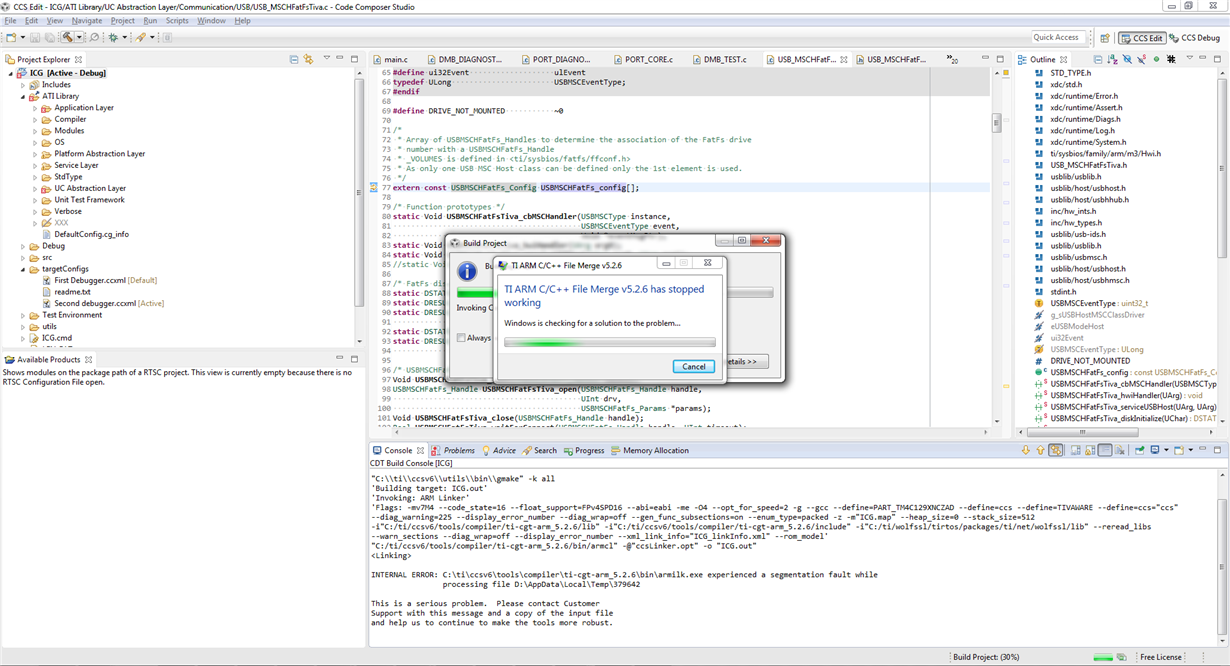Hello,
I'm using CCS Version: 6.1.0.00104, TIRTOS: tirtos_tivac_2_14_04_31 with TM4C129.
i have many number of constants that i used inside my functions like
function1("hello");
function2("hello");
i was expecting that the compiler is allocating the hello constant in the same memory location, but unfortunately, i can see the first hello in different location than the second hello.
Is it something which is related to the optimization?
Thanks,
Mohammed Fawzy


